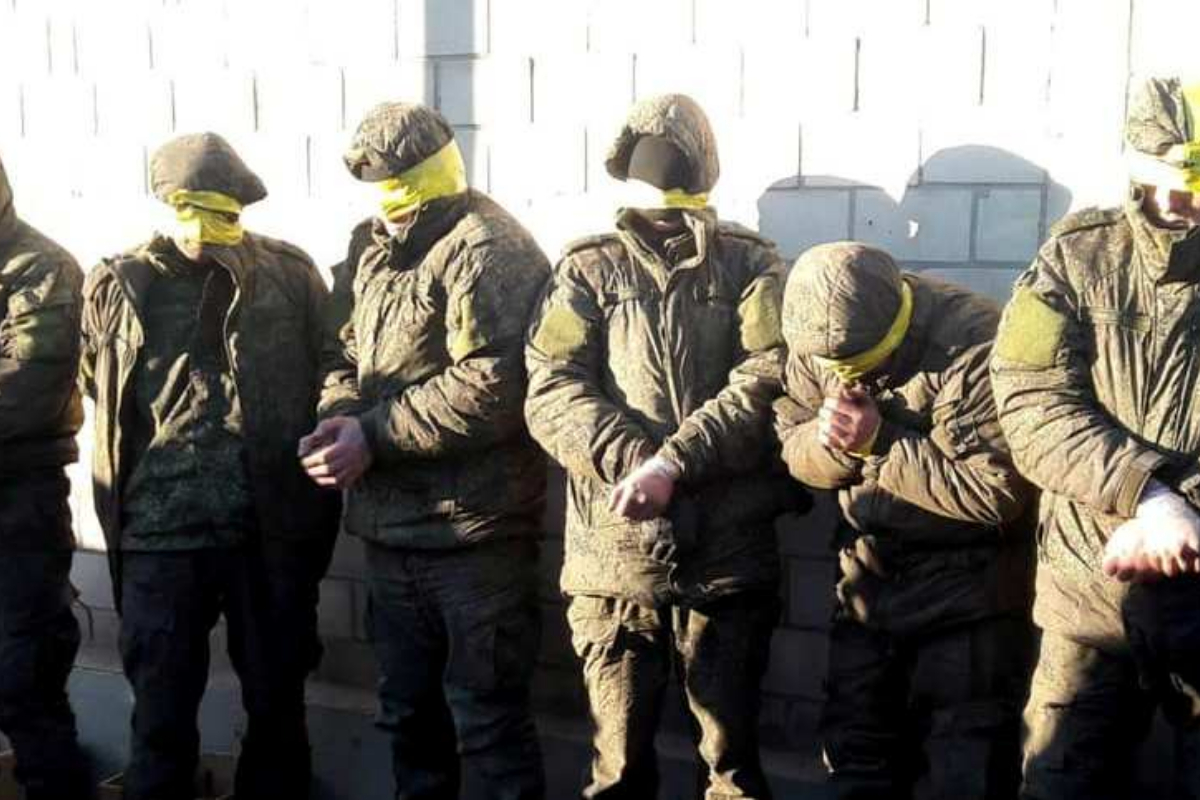Ukraine war: Zelensky seeks fighter jets from France and Germany
Ukraine's president has moved his request for fighter jets to France and...

Ukraine war: Inside a POW camp for Russians
Ukraine war: Russian missiles were once again teasing Ukraine from the sky as we entered this prisoner-of-war center in the west of the country.
Hundreds of seized Russian soldiers, conscripts, and mercenaries are being kept in these run-down structures, which are one of 50 detention facilities in Ukraine.
The crump of Ukrainian air defenses could be heard in the distance as we were led into a basement, to be met with the sight of dozens of prisoners taking shelter from the Russian attack.
Prisoner exchanges have become a regular feature of this war and for Kyiv, it is crucial that they continue. Ukraine said this month it had secured the release of 1,762 men and women so far in prisoner swaps. These are highly sensitive operations, often taking months to arrange.
Prisoners of war are not permitted to be paraded or exposed in public under the Geneva Conventions.
We were free to approach anyone and ask for their permission. However, the guards accompanied us wherever we went, and these folks were unlikely to be discussed freely.
Many people concealed their faces to hide their identities.
Last November, a UN human rights report based on interviews with prisoners who spoke of torture and ill-treatment uncovered abuses by both sides.
The guards looked eager to demonstrate that they were treating the detainees well.
One combatant revealed he had been working for a mercenary gang. He had been transported to this facility three days earlier after being taken prisoner near the eastern town of Soledar by Russian forces last month.
A few stood defiantly looking on. We caught the gaze of one prisoner, who said he was apprehended on December 29 in the Luhansk region.
“I hope I will be exchanged and that I won’t have to go back into the army,” he said.
“What if you have no choice?” I asked.
He paused for a second: “I have some ideas. I could come back by surrendering voluntarily.”
As we exited the refuge, it became evident that half of the detainees had been injured.
Some had bandaged hands or feet. Others walked with a severe limp.
One young man broke down as he detailed losing his leg in a grenade explosion.
As we approached the throbbing sound of a compression drill, a small assembly line with prisoners of war assembling outdoor furniture sets came into view.
They worked with their heads down once more.
We were told that a local company had a contract with the institution, which meant that the convicts could also earn money, primarily to spend on cigarettes and sweets.
Most prisoners of war are forced to work in tasks like these. Only Russian officers, it seemed, had an option.
The convicts were marched to a temporary canteen on the top floor for lunch. A Ukrainian flag waved in the cold wind through the window.
Except for the sound of eating, they ate rapidly and quietly. Then, table by table, in perfect syncopation, they stood up and exclaimed in Ukrainian, “Thank you for lunch!”
Inmates here are required to watch TV in Ukrainian, including programs on Ukrainian history and the southern city of Mariupol, which was all but obliterated by a Russian siege and bombing that lasted for months.
The last exchange included some of the Ukrainian soldiers who had defended Mariupol.
We asked one inmate whether he knew what he was watching.
“More or less,” he explained. “I find it interesting.” He was unlikely to say anything negative.
It’s probable that some of the Russians in the room couldn’t comprehend the show they were forced to watch and didn’t want to.
The prisoners are allowed one phone call every two weeks, according to the guards. For their families back in Russia these calls are often the first chance they have to find out their sons have been captured.
“Where are you? I’ve asked half the city about you!” one young man’s mother could be heard over the phone.
“Mum, wait. I’m in captivity, I can’t say more.”
“With the bloody Ukrainians?” she said, before breaking down in tears.
“That’s it, Mum. Quiet,” he told her, as the guard stood over him. “The most important thing is that I’m alive and healthy.”
Some of the prisoners’ calls went unanswered, leaving them hoping for another chance on the phone – and a future prisoner swap.
Catch all the Business News, Breaking News Event and Latest News Updates on The BOL News
Download The BOL News App to get the Daily News Update & Live News.